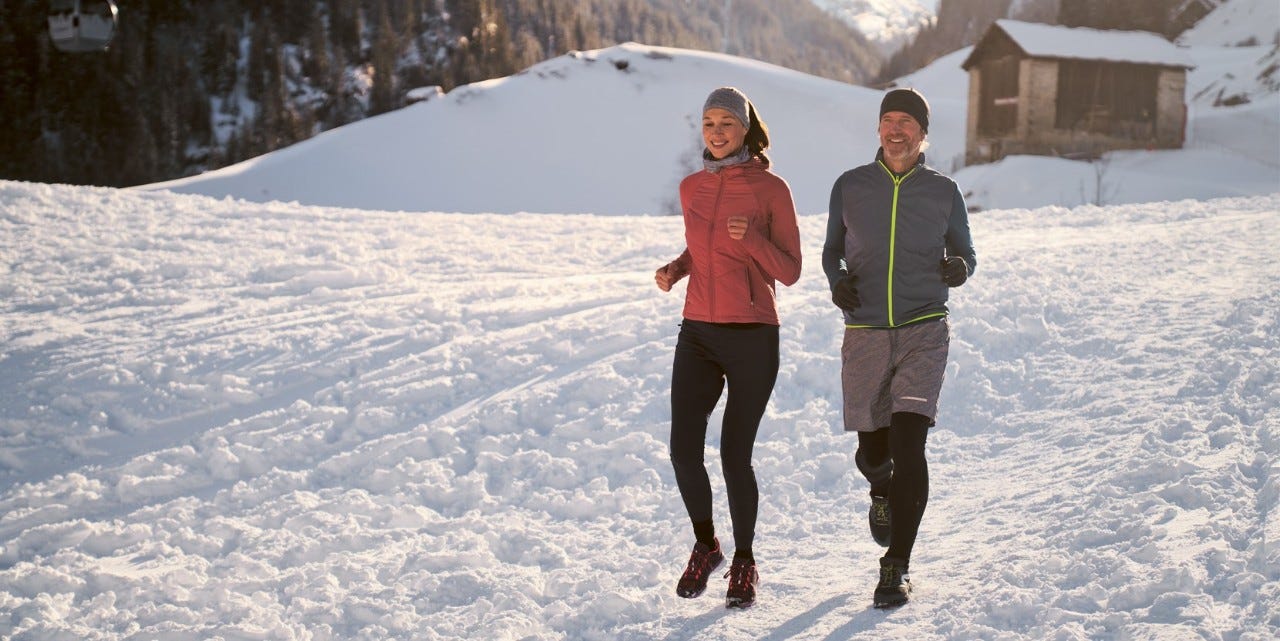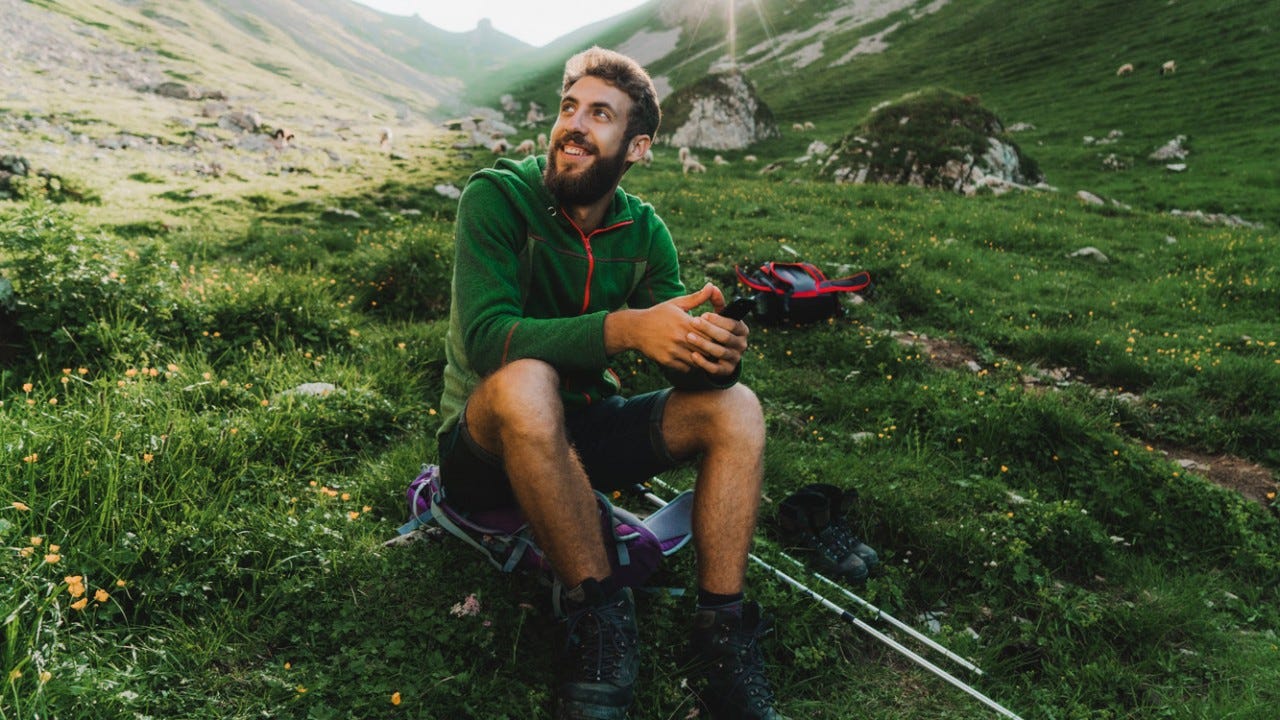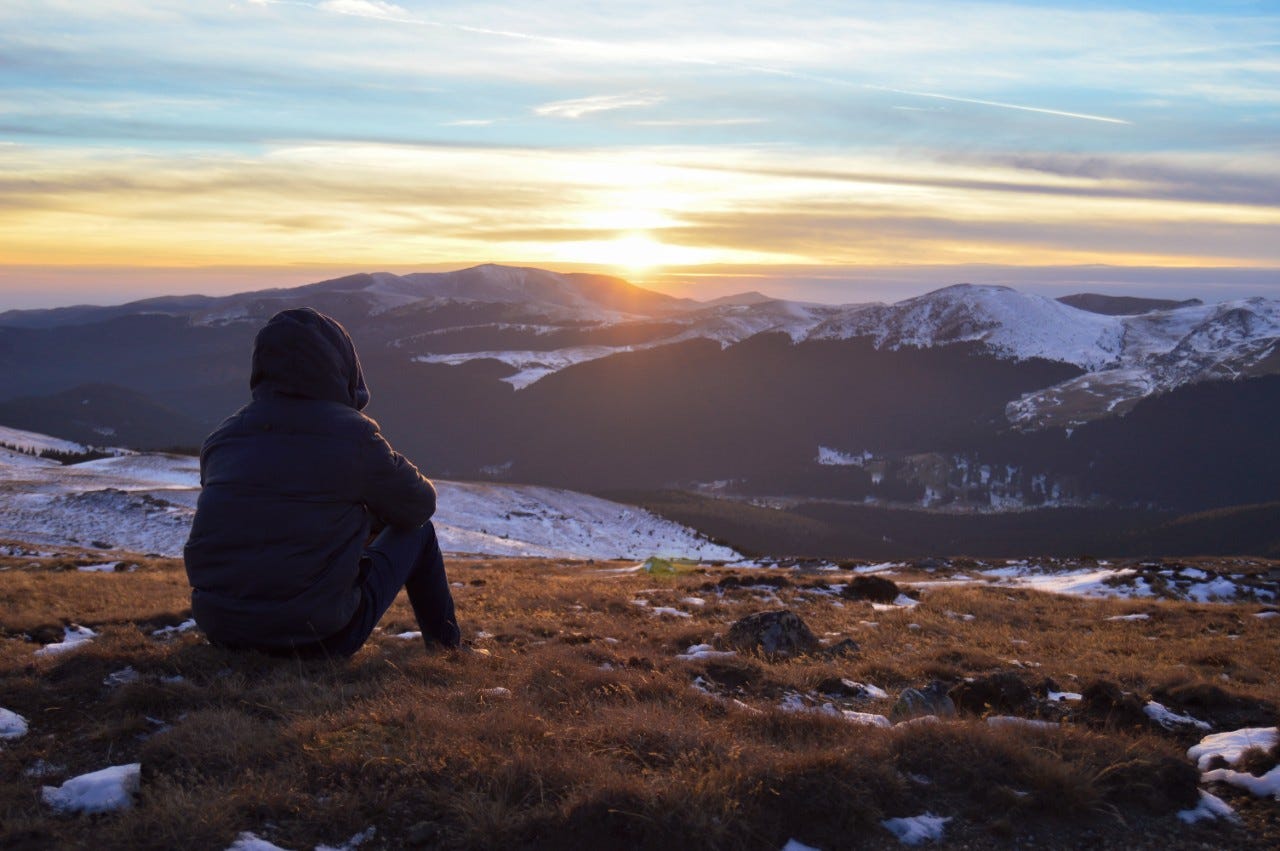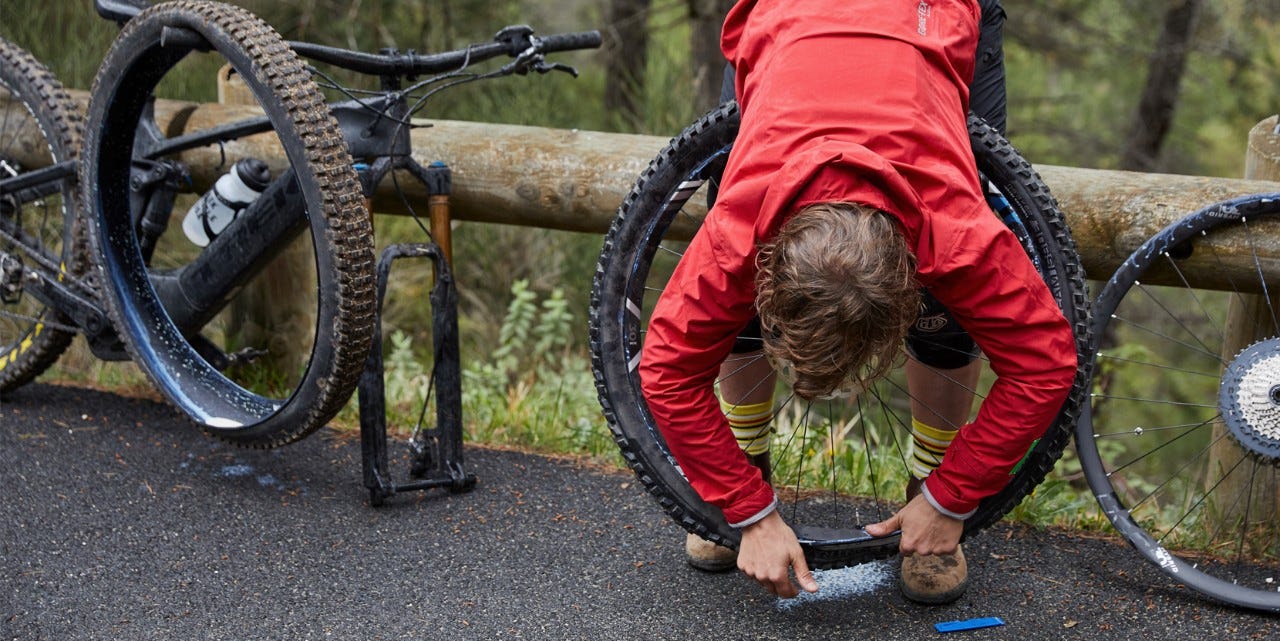Sports in winter in cold weather: Good or bad?
Even if it takes a bit of persuasion, sport outside is good for you, even in winter. But only when you bear certain things in mind.

If you do sports outside in the cold, you’ve certainly asked yourself at some point whether what you’re doing is healthy. But your worries are unfounded according to Dr Hanspeter Betschart, sports doctor at Medbase Abtwil : “Exercising is always going to be healthier than not exercising, even in winter.” Keeping fit has long been shown to have significant health benefits. What’s more, sport strengthens your immune system, fresh air is an energy booster and the sun helps stimulate vitamin D production. The cold is no reason to stay in, says Betschart. “Provided you take the appropriate measures during and after training.” So what’s right and what’s wrong?
Sport is the perfect way to sweat out a cold or the flu.
True or false: False
This is not only wrong, it is incredibly, dangerously wrong. Sport weakens the body, and it could even be dangerous. “If you continue to train despite being ill, you risk developing a life-threatening inflammation of the heart muscle”, says Betschart. The most important thing to remember is: only do sport if you are healthy.
Dress as warmly as possible to stop yourself from feeling cold.
True or false: False
If you dress up too warmly, you’ll start to sweat very quickly. Sportswear made of cotton and wool are completely inappropriate in winter as they are not able to wick perspiration away from the skin, instead becoming saturated and soggy. Wet clothes sticking to your body not only feel uncomfortable but also mean you are more likely to catch a cold. Your best bet is to opt for functional clothes that can be worn in layers.
When it’s cold, you should breath through your nose.
True or false: True
It is better to breathe through your nose rather than your mouth when the temperature is hovering around zero. This means your breath is already warm and moist when it reaches your lungs and doesn’t irritate them. If the temperature sinks well under zero, protection for your mouth may be advisable, for example a snood. Don’t panic if you start coughing after your outdoor workout. “Your lungs are irritated by the cold air”, says Betschart. Most people stop coughing within a day. If your cough persists, you might want to get checked out by a doctor.
You don’t need to drink as much in winter as you are sweating less.
True or false: False
Thirst might be less pronounced in the cold, but your body is still loosing fluids through sport. In addition, you use a lot more energy in the cold than in normal temperatures. It is vital that you drink enough and keep your energy supply up.
Winter training needs to be fast and intense so you don’t start to feel the cold.
True or false: False
Winter is ideal for basic workouts, in other words less intensive sports, in order to not overburden the lungs. Stretching is of particular importance. You should warm up gradually and not go hell for leather from the off. This is to help your lungs adjust gradually to the cold and because muscles can only perform if they are warmed up.
Your immune system is weakened after training.
True or false: True
Sport strengthens your immune system in the long run, but your body is much more susceptible to viruses and bacteria immediately after a training session. Betschart therefore suggests avoiding public transport and large gatherings of people immediately after your workout. He also recommends relocating indoors for stretches, a catch up with a workout partner or for strength training.
“Doing sport outside is always going to be healthier than not doing anything at all, even in winter. This also applies to people with heart disease or asthma. However you should adjust the intensity and duration of the workout according to the temperature and your state of health and discuss it with a doctor beforehand. . It is also important to observe general hygiene rules following sport, as your immune system is weakened in the short term. Recreational athletes should be fully functional a day later.”
Hanspeter Betschart, sports doctor and Head of the Swiss Nordic Skiing and Swiss Sliding medical team


